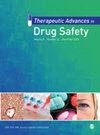covid - 19大流行期间疫苗风险沟通:是否有小规模或私人行动的空间?以色列人的经历。
IF 3.4
3区 医学
Q2 PHARMACOLOGY & PHARMACY
Therapeutic Advances in Drug Safety
Pub Date : 2022-08-05
eCollection Date: 2022-01-01
DOI:10.1177/20420986221112189
引用次数: 1
摘要
自2019冠状病毒病大流行以来,科学传播格局经历了重大破坏:出版物数量庞大,预印本出版物大量使用,数字化信息迅速传播。这反映了疾病和疫苗研究的空前速度。两种信息学术很快就爆发了:一种是科学的,一种是小报的。随着知识的不断发展,各国政府和机构非常迅速地开展了宣传运动,以解释不同的措施,包括疫苗接种战略和防治信息流行病。以色列自发地产生了对更集中的人群,即法语社区的需求,导致成立了一个独立的、多学科的疫苗工作队,由20名高级别志愿者、医生、药剂师和科学家组成,向最需要的保健专业人员和公众,以及以色列和国外的专家会议,提供公开和免费的循证信息。现有资源:40场网络研讨会,均可在协会网站上记录和访问,问答,新闻和科学文献综述,热线电话;通过网站、社交媒体和视听媒体进行沟通。法语,英语和希伯来语。该小组承诺在以色列和国外向国际社会解释以色列在疫苗推广和提供实际数据方面的作用。业绩指标如下:参会人数(~3000),网站访问次数(7200 +)社交媒体关注者。总之,这一宣传运动不需要预算;依靠志愿人员表示愿意为全球努力作出贡献,正如世界各地所看到的那样;使用简单、廉价、无处不在的IT平台。工作组创建了ERANIM,即以色列药物和疫苗安全协会。利用世卫组织、疫苗安全网、卫生机构和学院提供的资源,该计划可以很容易地适用于少数民族或中/低收入国家。关键因素是多学科、社区的影响者和伙伴关系网络。简明扼要:covid - 19大流行期间疫苗风险沟通:是否有小规模或私人行动的空间?背景:自2019冠状病毒病大流行以来,科学传播格局经历了重大破坏:出版物数量庞大,预印本出版物得到充分利用,数字化信息迅速传播。这反映了疾病和疫苗研究的空前速度。两种信息学术很快就爆发了:一种是科学的,一种是小报的。随着知识的不断发展,各国政府和机构非常迅速地开展了宣传运动,以解释不同的措施,包括疫苗接种战略和防治信息流行病。以色列的一项倡议:方法:以色列自发地产生了对更有针对性的人群,即法语社区的需求,因此建立了一个独立的、多学科的疫苗工作队,由20名高级别志愿者、医生、药剂师和科学家组成,向最需要的保健专业人员和公众开放和免费提供基于科学的信息,然后向以色列和国外的专家会议提供信息。成果:现有资源:通过网站、社交媒体、视听媒体,开展40余场网络研讨会、录音、问答、新闻和科学文献综述、热线等。法语,英语和希伯来语。该小组承诺在以色列和国外向国际社会解释以色列在疫苗推广和提供实际数据方面的作用。业绩指标如下:参会人数(~3000),网站访问次数(7200 +)社交媒体关注者。总而言之:这场宣传运动不需要预算;依靠志愿人员表示愿意为全球努力作出贡献,正如世界各地所看到的那样;使用简单、廉价、无处不在的IT平台。工作组创建了ERANIM,即以色列药物和疫苗安全协会。利用世卫组织、疫苗安全网、卫生机构和学院提供的资源,该计划可以很容易地适用于少数民族或中/低收入国家。关键因素是多学科、社区的影响者和伙伴关系网络。本文章由计算机程序翻译,如有差异,请以英文原文为准。

Risk communication on vaccines during the COVID19 pandemic: is there room for small size or private initiatives? An Israeli experience.
The scientific communication landscape has undergone a significant disruption since the COVID-19 pandemic: a huge number of publications, ample use of preprint publications, a fast-spreading digitalized information. This reflected the unprecedented speed of the research on disease and vaccines. Two kinds of infodemic blew up very soon: a scientific and a tabloid one. With knowledge evolving continuously, governments and institutions deployed their communication campaigns very quickly to explain the different measures, including the vaccination strategies and to fight against infodemics. The need for a more focused population, the French-speaking community, arose spontaneously in Israel, leading to the creation of a Vaccine Task Force, independent, multidisciplinary, and composed of 20 high-level volunteers, physicians, pharmacists, and scientists, which provides evidence-based information, open and free, to healthcare professionals and the public, both most in demand, and then the experts’ meetings in Israel and abroad. Current resources: 40 webinars, all recorded and accessible on the association website, questions and answers, press and scientific literature review, and hotline; communication through the website, social media, and audio-visual media. In French, English, and Hebrew. The team undertook to explain the role of Israel in vaccine rollout and real-world data provision to the international community, both in Israel and abroad. Performance indicators are as follow: attendees’ number (~3000), website frequentation (7200 +) social media followers. In conclusion, this information campaign requires no budget; relies on volunteers who expressed their willingness to contribute to the global effort, as seen all over the world; and uses simple, cheap, and ubiquitous IT platforms. The Task Force created ERANIM, the Israel Society for Medication and Vaccines Safety. This scheme could easily apply for minorities or for medium/low-income countries, using the resources available in WHO, Vaccine Safety Net, health agencies, and academies. Key factors are multidisciplinary, influencers belonging to communities, and a network of partnerships. Plain Language Summary Risk communication on vaccines during the COVID19 pandemic: is there room for small size or private initiatives? An Israeli experience Background: The scientific communication landscape has undergone a significant disruption since the COVID-19 pandemic: a huge number of publications, ample use of preprint publications, a fast-spreading digitalized information. This reflected the unprecedented speed of the research on disease and vaccines. Two kinds of infodemic blew up very soon: a scientific and a tabloid one. With knowledge evolving continuously, governments and institutions deployed their communication campaigns very quickly to explain the different measures, including the vaccination strategies and to fight against infodemics. An Israelian initiative: method: The need for a more focused population, the French-speaking community, arose spontaneously in Israel, leading to the creation of a Vaccine Task Force, independent, multidisciplinary, and composed of 20 high-level volunteers, physicians, pharmacists, and scientists, which provides science-based information, open and free, to healthcare professionals and the public, both most in demand, and then the experts’ meetings in Israel and abroad. Results: Current resources: More than 40 webinars, recorded, questions and answers, press and scientific literature review, and hotline, through the website, social media, and audio-visual media. In French, English, and Hebrew. The team undertook to explain the role of Israel in vaccine rollout and real-world data provision to the international community, both in Israel and abroad. Performance indicators are as follow: attendees number (~3000), website frequentation (7200 +) social media followers. In conclusion: This information campaign requires no budget; relies on volunteers who expressed their willingness to contribute to the global effort, as seen all over the world; and uses simple, cheap, and ubiquitous IT platforms. The Task Force created ERANIM, the Israel Society for Medication and Vaccines Safety. This scheme could easily apply for minorities or for medium/low-income countries, using the resources available in WHO, Vaccine Safety Net, health agencies, and academies. Key factors are multidisciplinary, influencers belonging to communities, and a network of partnerships.
求助全文
通过发布文献求助,成功后即可免费获取论文全文。
去求助
来源期刊

Therapeutic Advances in Drug Safety
Medicine-Pharmacology (medical)
CiteScore
6.70
自引率
4.50%
发文量
31
审稿时长
9 weeks
期刊介绍:
Therapeutic Advances in Drug Safety delivers the highest quality peer-reviewed articles, reviews, and scholarly comment on pioneering efforts and innovative studies pertaining to the safe use of drugs in patients.
The journal has a strong clinical and pharmacological focus and is aimed at clinicians and researchers in drug safety, providing a forum in print and online for publishing the highest quality articles in this area. The editors welcome articles of current interest on research across all areas of drug safety, including therapeutic drug monitoring, pharmacoepidemiology, adverse drug reactions, drug interactions, pharmacokinetics, pharmacovigilance, medication/prescribing errors, risk management, ethics and regulation.
 求助内容:
求助内容: 应助结果提醒方式:
应助结果提醒方式:


